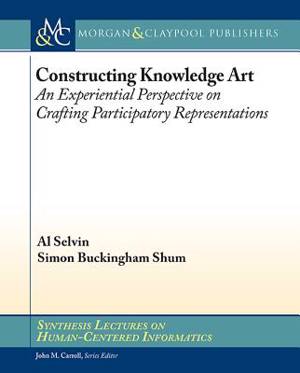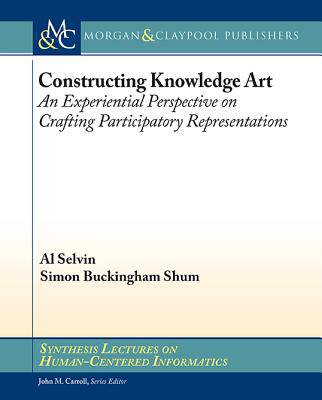
- Afhalen na 1 uur in een winkel met voorraad
- Gratis thuislevering in België vanaf € 30
- Ruim aanbod met 7 miljoen producten
- Afhalen na 1 uur in een winkel met voorraad
- Gratis thuislevering in België vanaf € 30
- Ruim aanbod met 7 miljoen producten
Zoeken
Constructing Knowledge Art
An Experiential Perspective on Crafting Participatory Representations
Al Selvin
€ 45,45
+ 90 punten
Uitvoering
Omschrijving
This book is about how people (we refer to them as practitioners) can help guide participants in creating representations of issues or ideas, such as collaborative diagrams, especially in the context of Participatory Design (PD). At its best, such representations can reach a very high level of expressiveness and usefulness, an ideal we refer to as Knowledge Art. Achieving that level requires effective engagement, often aided by facilitators or other practitioners. Most PD research focuses on tools and methods, or on participant experience. The next source of advantage is to better illuminate the role of practitioners-the people working with participants, tools, and methods in service of a project's larger goals. Just like participants, practitioners experience challenges, interactions, and setbacks, and come up with creative ways to address them while maintaining their stance of service to participants and stakeholders. Our research interest is in understanding what moves and choices practitioners make that either help or hinder participants' engagement with representations. We present a theoretical framework that looks at these choices from the experiential perspectives of narrative, aesthetics, ethics, sensemaking and improvisation and apply it to five diverse case studies of actual practice. Table of Contents: Acknowledgments / Introduction / Participatory Design and Representational Practice / Dimensions of Knowledge Art / Case Studies / Discussion and Conclusions / Appendix: Knowledge Art Analytics / Bibliography / Author Biographies
Specificaties
Betrokkenen
- Auteur(s):
- Uitgeverij:
Inhoud
- Aantal bladzijden:
- 119
- Taal:
- Engels
- Reeks:
Eigenschappen
- Productcode (EAN):
- 9781627052597
- Verschijningsdatum:
- 1/10/2014
- Uitvoering:
- Paperback
- Formaat:
- Trade paperback (VS)
- Afmetingen:
- 190 mm x 235 mm
- Gewicht:
- 217 g

Alleen bij Standaard Boekhandel
+ 90 punten op je klantenkaart van Standaard Boekhandel
Beoordelingen
We publiceren alleen reviews die voldoen aan de voorwaarden voor reviews. Bekijk onze voorwaarden voor reviews.











